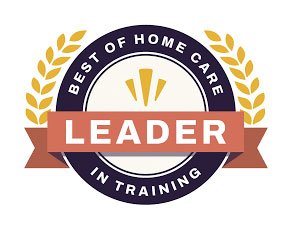It’s never easy for anyone to make a decision about getting hospice care for a loved one. Part of the reason is the reality that a beloved family member is facing a terminal illness and may need to leave home soon. However, hospice care can be the best option as it provides comfort to your loved one and improves their quality of life as much as possible.
But how do you know when it’s time for you or your loved one to go into a hospice?
Here Are Seven Signs to Look Out For:
- Frequent and Hard to Manage Pain. Family members may not be equipped to handle frequent episodes of pain both medically and emotionally. That’s mainly what home care assistance is for. Hospice staff knows how to provide relief and comfort to patients. If pain is becoming unmanageable, it might be time to get hospice care, where professionals can attend to your loved one’s needs.
- Decreased Appetite and Drastic Weight Loss. When one loses the desire to eat, it’s a sign that the body is no longer fighting to live. It might be best to get the patient in a hospice where they will be given utmost comfort and where the family could spend time with them and be assured that their meals are taken care of.
- Declining Mental Function. One of the most common reasons families take patients into hospice is that they are rapidly losing their mental functionality. The patient may be mostly irritable and confused all the time. Getting them into hospice is a more sound choice as they will require constant attention and care. This will also help avoid instances of the patient going off somewhere and getting lost or getting into an accident.
- Inability to Do Everyday Tasks. When regular tasks like getting dressed, preparing meals, eating, and going to the bathroom suddenly become too taxing for someone, it’s a sign that the treatment the patient is getting is not working as expected. Hospice care may be the better option than allowing them to live alone because they clearly need assistance.
- Breathing Difficulty. You might want to discuss with your doctor the possibility of palliative and hospice care when your loved one is constantly experiencing raspy, shallow, and gasping breathing. This is especially important if the patient has no companion at home to assist in case of emergency.
- More Frequent Visits to the ER. If your loved one is spending more days in the hospital than at home, it may be time to consider the benefits of getting into hospice as it is a sign that the patient’s health is deteriorating. In most cases like this, the patient will also be more comfortable in a hospice than having to be rushed in and out of a hospital.
- When the Doctor Recommends It. The doctor is the best person to ask if palliative or hospice care is the best choice for your loved one. It’s not going to be an easy decision for the doctor and the family, but if it’s recommended that hospice care be started, it means that’s what’s needed for their well-being.
Hospice Care in Atlanta: Golden Rule Hospice
Lisa Glynn, co-founder and COO at Golden Rule Hospice shared,“The idea of having a loved one taken into hospice care will take an emotional toll for anyone. But it’s important to understand that it’s the best possible option where your loved one will be given the care and quality of life that they deserve.”
By knowing the signs to look for, such as those discussed above, you will be more equipped to make a decision for your loved one!
Golden Rule Hospice understands what it needs to improve the quality of life of every patient that comes to us. They have a team of experienced and dedicated professionals who are genuinely committed to providing quality hospice care services in Atlanta. If you want to know more about their services and how they can care for your loved one, call (470) 395-6567!




